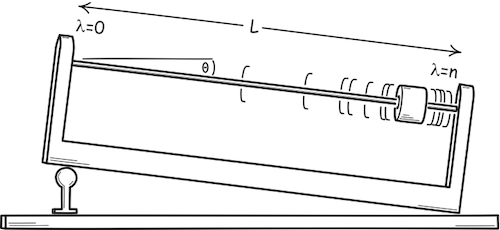
home >> lectures>>Rotman Summer School

Einstein's Miraculous Argument of 1905
Tuesday July 16, 2013

In 1905, his annus mirabilis--year of wonders, Einstein published a series of extraordinary papers that includes the development of the special theory of relativity and E=mc2. The only paper of that series that he then described as "very revolutionary" proposed the light quantum. Its principal argument was that the volume dependence of the entropy of heat radiation suggested that, thermodynamically, the energy of heat radiation is localized spatially in independent points, the light quanta.
Taken in the context of the electrodynamics of the time, it proposed a complete reversal of everything known. It was beyond adventurous and bordered on foolhardy.
Taken in the context of Einstein's well-developed program of research in statistical physics, it was an inspired but secure application of methods that had proven themselves capable of identifying the atomic character of matter that lies hidden behind the continua of experience.
John D. Norton, "Atoms Entropy Quanta: Einstein's Miraculous Argument of 1905," Studies in History and Philosophy of Modern Physics, 37 (2006), pp. 71-100. Download.
John D. Norton, "Einstein's Miraculous Argument of 1905: The Thermodynamic Grounding of Light Quanta" in C. Joas, C. Lehner and J. Renn (eds.), HQ1: Conference on the History of Quantum Physics: Preprint 350. Vol. 1, pp. 67-82. Download.
John D. Norton, "Atoms Entropy Quanta: Einstein's Statistical Physics of 1905," Goodies.
Einstein's Statistical Papers of 1905
"A New Determination of Molecular Dimensions" Buchdruckerei K. J. Wyss, Bern, 1905. (30 April 1905);
Annalen der Physik, 19(1906), pp. 289-305.
German English
"On the motion of small particles suspended in liquids at rest required by the molecular-kinetic theory of heat."
Annalen der Physik, 17(1905), pp. 549-560.(May 1905; received 11 May 1905).
German English
"On a heuristic viewpoint concerning the production and transformation of light."
Annalen der Physik, 17(1905), pp. 132-148.(17 March 1905).
German English1 English2
No-Go Result for the Thermodynamics of Computation
Thursday July 18, 2013

All computation generates heat. Disposing of that heat has traditionally been a majorfactor in the practical design of computers. The thermodynamics of computation seeks to find the minimum heat generation that must arise in computation. The first step to this minimum is to make the machines smaller. They use less power and generate less heat. Once we are employing molecular-scale devices, are we still faced with some minimimum of heat generation?
A modern consensus answers yet. It is based on an idea that is appealing, at least initially. The logical specification of the operations computed sets the lower limit. Logically irreversible operations, like erasure, are the culprits. According to Landauer's principle, they either create thermodynamic entropy or pass it to the environment; erasure of one bit requires passing of k ln 2 of entropy. Oherwise all computational processes can in principle be carried out by thermodynamically reversible processes that create no entropy.
Closer inspection of the field, however, shows that all is not well. The arguments offered in support of Landauer's principle depend on repeated misapplications of thermal and statistical physics. Worse, the field ignores fluctuations that dominate all processes at molecular scales. The no-go result shows that any molecular scale process must create more thermodynamic entropy than tracked by Landauer's principle if the process is to overcome fluctuations and go to completion.
John D. Norton, "All Shook Up: Fluctuations, Maxwell's Demon and the Thermodynamics of Computation". Download.
Part II has the most recent and best developed version of the No-Go result.
John D. Norton, "When a Good Theory Meets a Bad Idealization: The Failure of the Thermodynamics of Computation." Goodies.
Papers in the thermodynamics of computation
Landauer, Rolf (1961). "Irreversibility and heat generation in the computing process," IBM Journal of Research and Development, 5, pp. 183-191. Download.
Bennett, Charles H. (1982). "The thermodynamics of computation--a review," International Journal of Theoretical Physics, 21(12), pp. 905-940. Download.
Videos